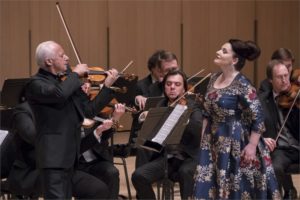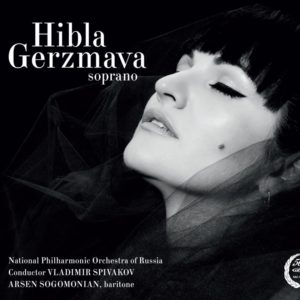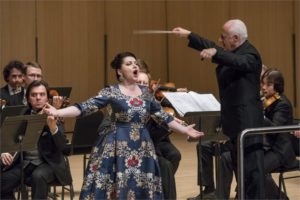What is there to say?
Artists and organizations – some of them – have said plenty; others, very little. Some have chosen their words carefully, like a doe making her way through a field riddled with landmines – any step provokes angry reaction, any bent blade of grass a torrent of judgement. Some have simply not said anything at all. There are arguments in waterfalls of threads online – sometimes they break a dam, mostly they don’t. Walls remain walls. That doesn’t mean hacking at them in a real way, with real tools, isn’t important. Social media has, since the outbreak of the war in Ukraine, been a fascinating way to observe who uses tools, and how, and why, though these platforms (whose influence, for good and bad, ought not to be dismissed) have also provided reminders of the ease with which many organizations and figures alike can hide, obfuscate, and conceal, or alternately, promote, congratulate, posture. Sometimes though, none of those things happen, but something far deeper, better, more authentic. At present that authenticity isn’t merely nice – it’s necessary.
The Kremerata Baltica Chamber Orchestra, currently on tour, recently engaged in a fascinating series of exchanges on their Facebook page after posting a supportive message and an actionable link (which I publicly thanked them for); the transparency of such efforts and exchanges is what the situation now demands. One hopes more organizations will follow suit, but alas, such direct expression in those other arenas is being blunted by political and economic interests, not humane and conscientious ones. The meaningful change inspired by pandemic which so many had hoped for in the classical world hasn’t totally manifest. (Some may argue with me on this, and really, go ahead; sticking to my guns.) There is a feeling, in looking at the mad race back to a crap old normal that didn’t work well for anyone not at the top, that war has magnified the compassion deficit uncovered by the pandemic a hundred-fold. People are already suffering emotional burnout, and now… now. But I’m not so sure performative hashtags are the answer. Certainly, such gestures satisfy marketing departments and board members who wish to convey concern (#concern); whatever is easiest, least risky, most theatrical, requiring lowest effort but eliciting maximum applause and maintaining the comfortable position of coolness (or victimology narratives), with the requisite grab for sexy influencer clicks, well yes, this. (I get it; take a look at my hashtags, done for clarity and indexing on the internet, but still.) I naively want to believe people are still (somehow) good, that they are not all selfish, that they will take initiative, however big or small, and not for their own sake; how I want to feel there is a willingness to risk comfort and familiarity and position, that humanity will make an effort, move beyond, give a damn – not for themselves, not for bank accounts, not for comfort or the continuance of some pretentious, capital-A form of art or some jewellry-rattling form of #fancy #night #out, but because it is simply the right thing to do. Watching numerous huge protests across the world is encouraging; people care, many of them, but I wonder how much is translating into real action, a contemplation given extra force in examining various responses within the classical world.
It is a community which has, this week, been a hodge-podge of activism, protest, confusion, awkwardness, silence, diplomacy, and carefully-worded outrage. Some, like Opernhaus Zürich, have been straight-forward: “We strongly condemn the unprecedented war of aggression on Ukraine.” The purposeful inclusion of those words (“condemn” “war” “aggression”) are incredible when seen in contrast to the approach of other houses. Clarity matters; language matters. Russian conductors Kirill Petrenko and Semyon Bychkov, have used similar clarity in their respective statements. Released through the Berlin Philharmonic, Petrenko’s note says that Putin’s “insidious attack” does indeed “violate international law.” The head of one of the world’s most famous (and storied) orchestras writing this, publicly, is noteworthy; for Petrenko (who is Jewish), music is certainly not above, nor separate, from politics. How could it be, though, considering the history and creation of so many pieces? Going further yet is Semyon Bychkov, who has written a series of strongly-worded, thoughtful responses over the past week. In one statement, he pinpoints the importance of recognizing the intersection of history, memory, conflict, and narratives, something which has been the subject of heated online discourse since the start of the war this week:
One of many signs and symbols that the country has returned to pre-Perestroika times is the dissolution of the Memorial Society founded by Nobel Peace Prize winner Andrei Sakharov in 1989. Its mission was to research every single victim of repression and keep the memory of the dead alive. Through the dissolution of the Memorial on 29 December 2021 victims of repression were killed once again. This too is a form of genocide. Not in the Russian-occupied Donbas of Ukraine as Putin claims.
The Russian regime wants to obliterate the memory of its victims. If we forget them we will betray them.
Earlier this week, Bychkov announced the cancellation of a planned series of concerts leading the Russian National Youth Orchestra. Rather than sticking head in the sand and stating “culture continues” he makes real the very real idea that choices during war matter; actions result in things people will, or won’t, experience directly – and this is what creates impact in a real way, an impact which morally dominates any ostrich-like, romanticized notion of what culture (specifically classical music) can or should be. Bychkov’s cancellation is not about punishment, as the St. Petersburg-born maestro explains:
I want the spirit of this decision to be unmistakably clear: it is in no way directed at the orchestra or its public. The emotional suffering of ordinary Russian people at this time, the feeling of shame and economic losses they experience are real. So is a sense of helplessness in face of repression inflicted by the regime. Those individuals who dare to oppose this war put their own life in danger. They need us who are free to take a stand and say: ‘The guns must fall silent, so that we can celebrate life over death’.
He writes something incredibly important just before this, that performing “under the present circumstances would be an unconscionable act of acquiescence.”
This is not, it is worth nothing, an act meant to sow division; it is an act of solidarity that fully and openly acknowledges the central role of economics within the classical world, one rarely discussed but wholly vital, especially the impact the pandemic has had on culture. The money-meets-government factor is an element which certainly deserves scrutiny, and indeed it’s one many Russian artists have now dared to question. A strongly-worded open letter from Russian arts workers reads, in part, “Everything that has been done culturally over the past 30 years is now at risk: all international ties will be severed, cultural private or state institutions will be mothballed, partnerships with other countries will be suspended. All this will destroy the already fragile economy of Russian culture and significantly reduce its significance both for Russian society and for the international community as a whole.” So far the petition has more than 2100 signatories. I can only guess how many of those who signed are, or have been, on the streets to protest – there have been several across Russia, and thousands of people (including composer/musician Alexander Manotskov) have been detained . Several Russian cultural figures (including, rather notably, Vladimir Urin and Vladimir Spivakov) have signed an anti-war petition in which they recognize that “in each of us lives the genetic memory of war. We do not want a new war, we do not want people to lose their lives.” It may seem milquetoast in its wording, but as Meduza editor Kevin Rothrock pointed out, “many people are risking their livelihoods with this. It’s not your throwaway virtue signalling.” If art is about connection, as some have recently claimed, then the most important points in that line of connection must be financial; to disinclude them is to engage in a privileged form of willful blindness. Who can afford such a luxury now?
Moscow-based art museum Garage has released a public announcement in which they announce they are halting all of their exhibitions “until the human and political tragedy that is unfolding in Ukraine has ceased. We cannot support the illusion of normality when such events are taking place.” A group of public figures, including author Vladimir Sorokin and actress Chulpan Khamatova, composer/pianist Anton Batagov, and Nobel-Prize-winning journalist Dmitry Muratov, have added their names to another petition, which reads (in translation):
The war Russia has launched against Ukraine is a disgrace. It is OUR shame, but unfortunately, our children, the generation of very young and unborn Russians, will also have to bear responsibility for it. We do not want our children to live in an aggressor country, to feel ashamed that their army has attacked a neighbouring independent state. We call on all citizens of Russia to say NO to this war.
We do not believe that an independent Ukraine poses a threat to Russia or any other state. We do not believe Vladimir Putin’s statements that the Ukrainian people are under the rule of the “Nazis” and need to be “liberated”. We demand an end to this war!
The outrage – its reality, its clarity in expression, the risk inherent to its expression – are all very real, and witnessing it across the spectrum, in real time, has been harrowing. To be blunt: I never expected Russian artists to publicly take a stand, to venture, to risk, but when they did, I am struck (mostly) by the humanity, and the specificity of language in conveying that humanity (something I think Bychkov is especially good at capturing). That doesn’t mean there hasn’t been disagreement, defensiveness, an appalling lack of compassion. False equivalency, that pungent symbol of 21st century socio-political exchange, has been expressed by some – it reads as little more than self-interested apologism; the “what aboutisms” that come with such reactions beat on the intellect and the soul equally. Such responses were taken to task by Moldovan violinist Patricia Kopatchinskaja, who shared specific and personal details of her family history, one which is, like so many of us Eastern Europeans, threaded through with tragedy:
My already very old grand-grand-parents were deported by the Russians to Siberia during the second world war. One grand-grandfather was shot. My grandparents were robbed by Russian soldiers of home and everything. Not even being allowed to keep the shoes of their small children they had to live on the street. These are facts, not opinions.
Equally clear has been the position of music publisher Bärenreiter: “We vehemently oppose violence as well as the unfounded and unjustified aggression of one state against another, for which there is absolutely no place in cultural Europe.” They added the call to “let us all think about how we can actively support the Ukrainian people who are paying the highest price just for expressing their will to live just like us.”
Herewith are two links, ones I shared with Bärenreiter, which I am sharing here – not to seem saintly, not to prove anything, but merely because of a feeling of utter helplessness; I don’t know what else can be done, but to provide something which might have a real impact past numerous other tepid words and performative gestures. Perhaps my history working for Amnesty International many years ago in Dublin is making itself known; those busy days working alongside journalists covering a variety of human rights stories left its own indelible mark. These links (to accredited charities) were shared with me by Ukrainian contacts, who have been pleading with their well-meaning, non-Slavic counterparts to please fucking do something! They contain real, actionable suggestions to real organizations, many of them working at ground level in Ukraine.
I don’t want to offer any grand philosophical statement about how culture “erases” borders – those borders and identities matter to people. People are fleeing across them right now; the fact they’re from a certain place matters a great deal, to them and to others. People right now are arguing about those identities, warring over them, with words and weapons equally. Culture doesn’t melt anything; music doesn’t mend anything – if anything, music has the power to rip hearts wide open, to inflame passions, to provoke strong feelings and thoughts; sometimes it should. Music isn’t always some mystical prescriptive bandage meant to heal the world – history has repeatedly taught us (or tried to teach us) that such reductive understanding doesn’t exactly work, for performers or audiences. Of course, history is largely labyrinthine; right action and its effects are not. We all experience life, and its sounds, differently – anthems, marches, symphonies, operas – births, deaths, sex, love. We all come from somewhere; sometimes we leave those places, but our hearts stay. How could they not? Sing, proclaim, protest; have a voice. Your voice matters, and will in time, I think, be less a part of the labyrinth of history than a ragged, colorful thread in a vast quilt, a piece of which we take back to our homes, someday, somehow – against our skin, hidden, but close to our hearts.




